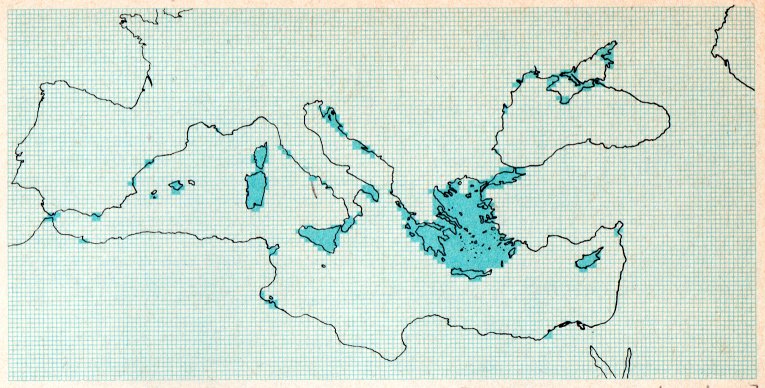Bibor
Doomsday Machine
I've seen in at least two threads now (the patch thread and Victoria's) that some players want coasts to be better than they currently are.
Well, they can't be. And they shouldn't be.
Coast is where seawater meets land. No matter what shape or form it takes, coasts by themselves are a desolate place. Seawater is toxic to humans, and most land dwelling creatures. Generally speaking, when they could help it, people through history avoided living near the coast if the coast itself wasn't particularly well suited for fishing and other aquatic sustenance methods. Although, fishing is just... well, fishing. You can't just eat fish. It simply doesn't work.
So, no, by themselves, most types of coasts are not particularily habitable by themselves. If anything, they represent a geographical and biological "end of the line".
Rivers, on the other hand, are the exact opposite. They were through history a source of fresh water, water for irrigation, food and served as major transporation lanes. And they still do. It's no coincidence that all major civilizations started near abundand sources of fresh water. I can't think of any civilization that sprung up in a delta.
All this changed of course with coastal and later transoceanic navigation.
Before we jump to Phoenicia, Greece and their counterparts in (South East) Asia as proof that coasts and islands are somehow the place to be, know that these civilizations were an exception to the rule. In fact, Phoenician, and later Greek colonies were built in strictly limited places. It was really simple: if the island or coast didn't have a sandy beach onto which to drag the ships out, it wasn't habitable. There were no harbors back then, not in the way we think of them anyway. You can't dock a galley. This is also the reason why piracy was so popular in the Caribbean - sandy beaches everywhere.
Long story short, coastal cities became important for connecting existing overland and river trade routes. Near the coast at first, over the ocean later.
Regarding growth and manufacturing, well, not all coastal mercantile cities could grow. In fact, many of these cities were built in inhospitable terrain (like Venice, Dubrovnik etc.) and mediterranean mercantile city-states had dislocated manufacturing and food production, sometimes dozens or even hundreds of kilometers away from the actual city, especially if the hinterlands were mountaneous and barren.
So yes, if you can help it, both IRL and in Civ6, if you want a coastal city, make it riverside or lakeside, or at least in close proximity to a mountain to build an Aqueduct.
A good example of a ridiculous engineering feat is the Constantinople water supply system initially ordered to be built by emperor Hadrian. Even today, fresh water is a major problem in Istanbul. It doesn't have enough fresh water to sustain its current population.
Well, they can't be. And they shouldn't be.
Coast is where seawater meets land. No matter what shape or form it takes, coasts by themselves are a desolate place. Seawater is toxic to humans, and most land dwelling creatures. Generally speaking, when they could help it, people through history avoided living near the coast if the coast itself wasn't particularly well suited for fishing and other aquatic sustenance methods. Although, fishing is just... well, fishing. You can't just eat fish. It simply doesn't work.
So, no, by themselves, most types of coasts are not particularily habitable by themselves. If anything, they represent a geographical and biological "end of the line".
Rivers, on the other hand, are the exact opposite. They were through history a source of fresh water, water for irrigation, food and served as major transporation lanes. And they still do. It's no coincidence that all major civilizations started near abundand sources of fresh water. I can't think of any civilization that sprung up in a delta.
All this changed of course with coastal and later transoceanic navigation.
Before we jump to Phoenicia, Greece and their counterparts in (South East) Asia as proof that coasts and islands are somehow the place to be, know that these civilizations were an exception to the rule. In fact, Phoenician, and later Greek colonies were built in strictly limited places. It was really simple: if the island or coast didn't have a sandy beach onto which to drag the ships out, it wasn't habitable. There were no harbors back then, not in the way we think of them anyway. You can't dock a galley. This is also the reason why piracy was so popular in the Caribbean - sandy beaches everywhere.
Long story short, coastal cities became important for connecting existing overland and river trade routes. Near the coast at first, over the ocean later.
Regarding growth and manufacturing, well, not all coastal mercantile cities could grow. In fact, many of these cities were built in inhospitable terrain (like Venice, Dubrovnik etc.) and mediterranean mercantile city-states had dislocated manufacturing and food production, sometimes dozens or even hundreds of kilometers away from the actual city, especially if the hinterlands were mountaneous and barren.
So yes, if you can help it, both IRL and in Civ6, if you want a coastal city, make it riverside or lakeside, or at least in close proximity to a mountain to build an Aqueduct.
A good example of a ridiculous engineering feat is the Constantinople water supply system initially ordered to be built by emperor Hadrian. Even today, fresh water is a major problem in Istanbul. It doesn't have enough fresh water to sustain its current population.




